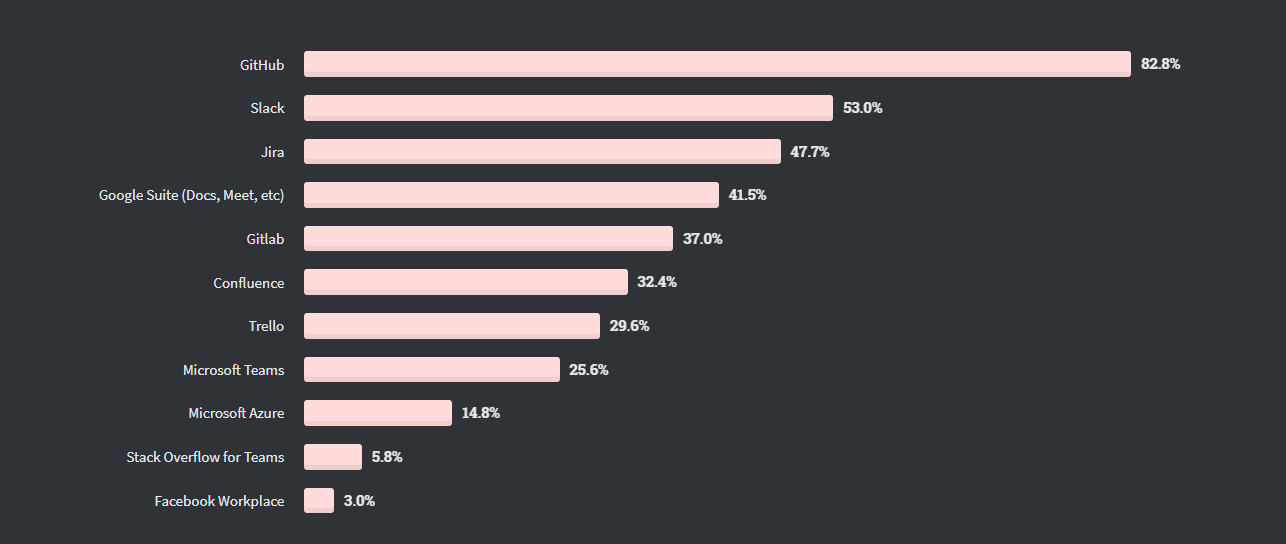GitHub vs GitLab: Which One is Better?


Introduction to Git and Cloud-based Git Repositories
Whether you’re a newcomer to the world of version control systems or an experienced developer, understanding the fundamentals of Git and cloud-based repositories is essential. Git, a distributed version control system (VCS), has transformed software development by enabling efficient collaboration and code management. Platforms like GitHub and GitLab, built on top of Git, further enhance these capabilities by providing robust cloud-based repository hosting services.
Getting Started with Git
Git, an open-source and high-speed version control system, serves as a backbone for software development projects, ranging from small-scale initiatives to large-scale enterprise endeavors. It offers developers the ability to track changes in files, manage codebases, and facilitate seamless collaboration without disrupting the workflow of others.
Key attributes of Git include:
- Snapshot-based Tracking: Git captures snapshots of the entire codebase, allowing developers to review or revert to previous versions effortlessly. This ensures better code quality and adherence to coding standards.
- Branching and Parallel Development: Developers can work on different branches of the software simultaneously, facilitating feature-based development and efficient management of multiple versions.
- Decentralized Workflow: Git’s decentralized nature empowers developers to collaborate over a local area network (LAN) and work on their local instances, enabling flexibility and autonomy.
Git outshines its predecessors such as Concurrent Versions System (CVS), Apache Subversion, Rational ClearCase, and Perforce due to its flexibility and robust functionalities. It enables users to work swiftly on various branch versions of a software product, providing superior management capabilities.
Moreover, the versatility of Git allows it to be used on local servers or in-house clouds, eliminating the need for subscription-based VCS services. Its capability to run IT projects globally, enabling seamless collaboration among distributed teams, makes it a preferred choice for many enterprises.
Cloud-Based Git Repositories
Enterprises often opt for cloud-based solutions to facilitate collaboration among remote or distributed teams. GitHub and GitLab, as cloud-based Git repositories, go beyond basic Git functionalities, offering unlimited storage for code-based repositories. They provide a comprehensive suite of features encompassing DevOps tools, code repository management, project management, issue tracking, and more.
The choice between GitHub and GitLab depends on specific project needs, team collaboration preferences, and the extent of DevOps integration required for the workflow.
In the subsequent sections, we’ll explore the distinctive features, advancements, and values offered by GitHub and GitLab, shedding light on how these platforms can streamline software projects by providing a complete suite of collaborative tools and efficient code management solutions.
Understanding GitHub and GitLab
The rivalry between GitLab and GitHub has been a significant talking point among developers due to their distinct approaches to managing code repositories and offering collaborative tools. Let’s delve deeper into their characteristics and understand the differences between these two popular platforms.
GitHub: A Pioneering Code Repository Hosting Service
GitHub is the world’s largest source code hosting platform, hosting over 40 million users’ repositories and projects. GitHub was created in 2008 by Chris Wanstrath, Scott Chacon, Tom Preston-Werner, and P. J. Hyett using Ruby on Rails. GitHub quickly gained traction and became a preferred choice for hosting open-source code repositories. Its intuitive interface, powerful collaboration tools, and the ability to host both public and private projects contributed to its rapid growth and widespread adoption among developers, individuals, teams, and enterprises.
Initially focused on code hosting and collaboration, GitHub has expanded its services over time, incorporating additional features like CI/CD workflows and project management tools. Its intuitive interface and vast user base have made it synonymous with open-source development and collaborative coding.
Key Features of GitHub:
- Specified labels and milestones for project management.
- Facilitates easy comparison of branches and website hosting.
- Syntax highlighting, integration with third-party APIs, and robust search capabilities.
- Allows quick integration of third-party providers and supports SVN, HG, and TFS.
- Provides both free and paid services.
Advantages of GitHub:
- Easy documentation sharing and a robust open-source codebase structure.
- Swift integration with third-party providers and extensive support for various systems.
- Offers both free and paid services for a wide range of users.
- Simplifies code comparison and publication/hosting of websites.
Disadvantages of GitHub:
- Limited space for free repositories.
- Some functionalities might be lacking compared to other development platforms.
- Costly for private repositories, and lacks extensive development functionalities.
- Space limitations and not entirely free of cost.
GitLab: An All-in-One DevOps Platform
In contrast, GitLab, launched in 2011 by Ukrainian developers Valery Sizov and Dmitriy Zaporozhets, is an all-encompassing DevOps platform. While GitLab began as a cloud-based Git repository hosting service, it evolved into a comprehensive platform offering project management, CI/CD pipelines, issue tracking, and various application development tools.
From its origins as an open-source, self-hosted alternative to GitHub, GitLab has expanded to provide both free and paid SaaS plans. It has grown into a versatile platform catering to various aspects of the software development lifecycle within a DevOps architecture.
Key Features of GitLab:
- Import code repositories from Bitbucket or Google Code.
- Offers an open-source community edition and supports self-hosting on all plans.
- Provides multiple tools for time tracking, group milestones, issue tracking, and more.
- Robust UI, enhanced branch protection, and user permissions for better control.
- Supported CI/CD lifecycle and user-friendly package distribution services.
Advantages of GitLab:
- Open-source licensing and self-hosting capabilities on all plans.
- Easy code maintenance and supported CI/CD lifecycle.
- User-friendly package distribution services.
- Offers essential project management tools within a DevOps architecture.
Disadvantages of GitLab:
- Comparative slowness in the interface.
- Bug management may require attention throughout the software lifecycle.
- Some enterprise-level software development features might be missing.
- Repositories might encounter common issues.
Both GitHub and GitLab have unique strengths and cater to different preferences and requirements in the development community. Developers often choose between them based on project needs, team collaboration preferences, and the extent of DevOps integration necessary for their workflows. Understanding the differences and assessing their offerings helps users make informed decisions for their software development endeavors.
Are GitLab and GitHub the Same Company?
No, GitLab and GitHub are not the same company. They are separate entities and competitors in the realm of Git repository hosting and development platforms.
GitLab is developed and maintained by GitLab Inc., an open-core company that operates GitLab, a DevOps software package that can develop, secure, and operate software.
On the other hand, GitHub is owned by Microsoft.
While both GitLab and GitHub offer similar services, they are developed, managed, and maintained by different companies and operate as separate entities within the software development industry.
GitHub vs GitLab: Key Differences
GitHub and GitLab, both popular platforms for version control and collaboration, have differences in various aspects:
| Parameters | GitLab | GitHub |
| Purpose | Serves as a repository hosting manager for software development | Functions as a service for hosting repositories with support for access control and collaboration |
| Application Type | Cloud-native application | Used to share work publicly |
| Free Private Repository | Offers free private repositories without restrictions | Provides free private repositories with a limit of three collaborators |
| Permission Control | Enables setting and modifying user permission roles | Grants read or write accessibility to repositories |
| CI/CD services | Offers built-in CI with DevOps automation solutions | Requires additional apps like Heroku for CI/CD services |
| Import and export | Provides detailed documentation for importing/exporting data | Lacks comprehensive documentation for popular Git repositories |
| Usability Navigation | Offers navigation features within the repository | Emphasizes usability navigation |
| Workflow | Emphasizes workflow reliability | Emphasizes workflow speed |
| Complete platform | Offers a packaged complete platform with fewer choices | Provides various free/paid apps in the marketplace |
| Self-hosted installation | Allows hosting a private GitLab version with the free plan | Only possible with GitHub enterprise plan for private server |
| Open-sourced | Open source for the community edition | Close-core and not open-source |
| Public repository | Allows developers to create a public repository | Enables unlimited free repositories for developers |
| Security | Considered more secure due to License Compliance | Less secure as it lacks License Compliance |
| Project Analysis | Provides project development charts for review | Lacks project analysis but offers commit history review |
GitLab vs GitHub: Similarities
Here are some similarities between GitHub and GitLab that highlight their shared functionalities and features:
- Third-party Integration Services: Both GitHub and GitLab offer extensive support for integrating with third-party tools and services, providing developers with a wide array of options for enhancing their workflows.
- Issues Set Up: They both allow users to establish milestones, assignees, and manage problem statuses, enabling efficient tracking and resolution of issues within projects.
- Clear Labeling Scheme: GitHub and GitLab employ a well-organized labeling scheme, facilitating streamlined software development practices and aiding in categorizing and identifying various issues or tasks.
- Issue Tracking: Both platforms provide robust issue-tracking features that enable users to assign team members to specific tasks, track their progress, and update their status as required.
- Self-hosted Versions: GitHub and GitLab offer options for self-hosted versions. However, GitHub primarily offers this through enterprise plans, while GitLab’s self-hosting capabilities are available across different plans.
- CI/CD Services: While GitHub relies on third-party apps for CI/CD services, GitLab includes pre-configured CI/CD tools, allowing for automated testing and deployment pipelines.
- Preview Code Changes: Developers can preview code changes and alterations within the platforms, enabling them to visualize modifications before committing to the main codebase.
- Wiki-based Documentation: Both GitHub and GitLab support comprehensive wiki-based documentation, providing users with a platform to create and maintain project-related documentation easily.
- Multiple Issue Assignees: Both platforms allow multiple issue assignees, facilitating collaboration and teamwork within projects.
- Team Discussions and Project Management Dashboards: GitHub and GitLab enable team discussions, fostering communication and collaboration among team members. Additionally, they provide project management dashboards for efficient project monitoring and organization.
- Load Performance Testing: GitHub offers load performance testing features within the app, whereas GitLab includes these features in its paid plans.
These shared features and functionalities demonstrate that while GitHub and GitLab may have some differences, they also possess several commonalities, making them both versatile platforms for software development and project management.
GitHub vs GitLab: Plan and Pricing in 2024
In 2024, GitHub and GitLab continue to be prominent Git repository hosting platforms, each presenting various features and tools for effective code project management. However, distinct differences exist in their pricing structures.
GitHub’s pricing entails multiple plans to accommodate diverse user needs:
- Free Plan: Basic features include public repositories, unlimited collaborators, and 500MB storage.
- Team Plan: Starts at $4 per user per month, offering private repositories, advanced tools, and 2GB storage per user.
- Enterprise Plan: Tailored for larger organizations, featuring advanced security, compliance, and management options, starting at $21 per user per month.
- GitHub One Plan: Geared toward businesses needing enterprise-level solutions across all their GitHub accounts, starting at $21 per user per month.
Conversely, GitLab’s pricing structure includes similar tiers:
- Free Plan: Offers unlimited private repositories, unlimited collaborators, and 10GB storage.
- Premium Plan: Starting at $29 per user per month, it encompasses additional functionalities such as code review, issue tracking, and CI/CD pipelines.
- Ultimate Plan: Provides advanced features like enterprise-grade security, compliance, and governance, starting at $99 per user per month.
GitHub generally holds a slight edge in cost-effectiveness over GitLab. Notably, some of GitLab’s exceptional features are bundled in the Ultimate plan, while similar capabilities in GitHub are available under Enterprise Cloud or Advanced Security Enterprise Server.
Both GitHub and GitLab present a variety of pricing plans tailored to different user requirements. GitHub tends to be more budget-friendly for small to medium-sized teams, whereas GitLab offers more sophisticated functionalities designed for larger organizations. The choice between them ultimately hinges on the specific needs and scalability of your project or organization.
GitHub vs GitLab 2024: Which Is The Best Option?
Choosing between GitHub and GitLab in 2024 relies heavily on your specific project requirements, team dynamics, and preferences. Both platforms have evolved with time, offering unique features that cater to different needs. Here’s a comprehensive comparison to help you make an informed decision:
Choose GitHub if:
- Community and Open Source: GitHub continues to be a hub for open-source collaboration, boasting a massive community. If your focus is on open-source projects or contributing to such initiatives, GitHub offers unparalleled visibility and collaboration opportunities.
- Ease of Integration: It has a wide array of integrations through its marketplace, facilitating customization and flexibility in adapting to diverse workflows. GitHub Actions, for CI/CD, allows creating custom workflows for various project needs.
- Project Visibility: GitHub’s strong suit lies in project visibility, making it an excellent choice for showcasing work publicly, gaining contributors, and fostering a sense of community around your project.
- Cost Consideration: GitHub offers free plans for public repositories and limited free private repositories (with restrictions on collaborators), making it suitable for smaller teams or open-source initiatives with budget constraints.
Choose GitLab If:
- Integrated Tools: GitLab provides an integrated set of tools encompassing CI/CD, project management, issue tracking, and more within a single platform. This makes it an attractive option for those seeking an all-in-one solution.
- Self-Hosting and Control: GitLab’s self-hosting option grants greater control over data and repositories, ideal for teams requiring enhanced privacy or compliance with specific regulations.
- Cost-Effective Private Repositories: It offers unlimited free private repositories, making it advantageous for teams handling private projects without limitations on collaborators.
- Security and Compliance: GitLab boasts robust security features, including built-in compliance capabilities like License Compliance, appealing to those prioritizing stringent security measures.
Suggestion for You:
- If community engagement and open-source collaboration are vital for your project, GitHub might be more fitting.
- For teams seeking an integrated suite of tools and greater control over their infrastructure, GitLab might be the better choice.
- GitLab’s unlimited free private repositories and self-hosting options are attractive for those requiring cost-effective privacy measures.
- Consider your team’s preferred workflow, need for third-party integrations, and customization requirements to determine which platform aligns better with your project’s unique needs.
Ultimately, the best choice between GitHub and GitLab depends on your project’s nature, collaboration preferences, need for privacy, security requirements, and budget considerations in 2024. Assess these factors to make the most suitable decision for your team and project goals.
Why GitHub Enjoys More Popularity than GitLab?
GitHub’s dominance over GitLab can be attributed to its early establishment. GitHub launched in 2008, giving it a significant lead over GitLab, which emerged as an open-source project in 2011.
Despite GitHub’s initial advantage, GitLab is gaining ground by introducing integrated continuous integration tools and offering a free option for private, self-hosted servers. According to a survey, GitLab expanded its market share by 4.6% from 2018 to 2019, while GitHub experienced a 0.4% decrease.
However, recent data from the Stack Overflow developer survey indicates a significant discrepancy in usage: 82.8% of respondents use GitHub, while only 37% opt for GitLab.
Even though GitHub remains the preferred choice for new developers, the tide is slowly turning as GitLab evolves into a specialized platform, boasting unique features and advantages.
Conclusion
In 2024, as a developer, overlooking tools such as Git or prominent cloud repository providers like GitHub and GitLab is not a smart option.
These tools are widely embraced by developers, teams, and organizations to guarantee meticulous code review processes and prevent the loss of valuable contributions.
Although the disparities between these tools may seem subtle initially, the fundamental distinction lies here: GitLab presents a holistic DevOps platform, while GitHub emphasizes extensive customization via its app marketplace.
Both GitHub and GitLab have evolved and expanded their capabilities in 2024. To determine the best fit, users should consider factors like project scope, team preferences, security requirements, and the need for additional DevOps functionalities.
Read more:
- Retrospective: Software Architecture and Design Trends in 2023
- 10 Best Software Development Services That Drive Success in 2024
- 10 Remarkable Artificial Intelligence Applications in 2024
- Top 10 AI and Machine Learning Trends for 2024





